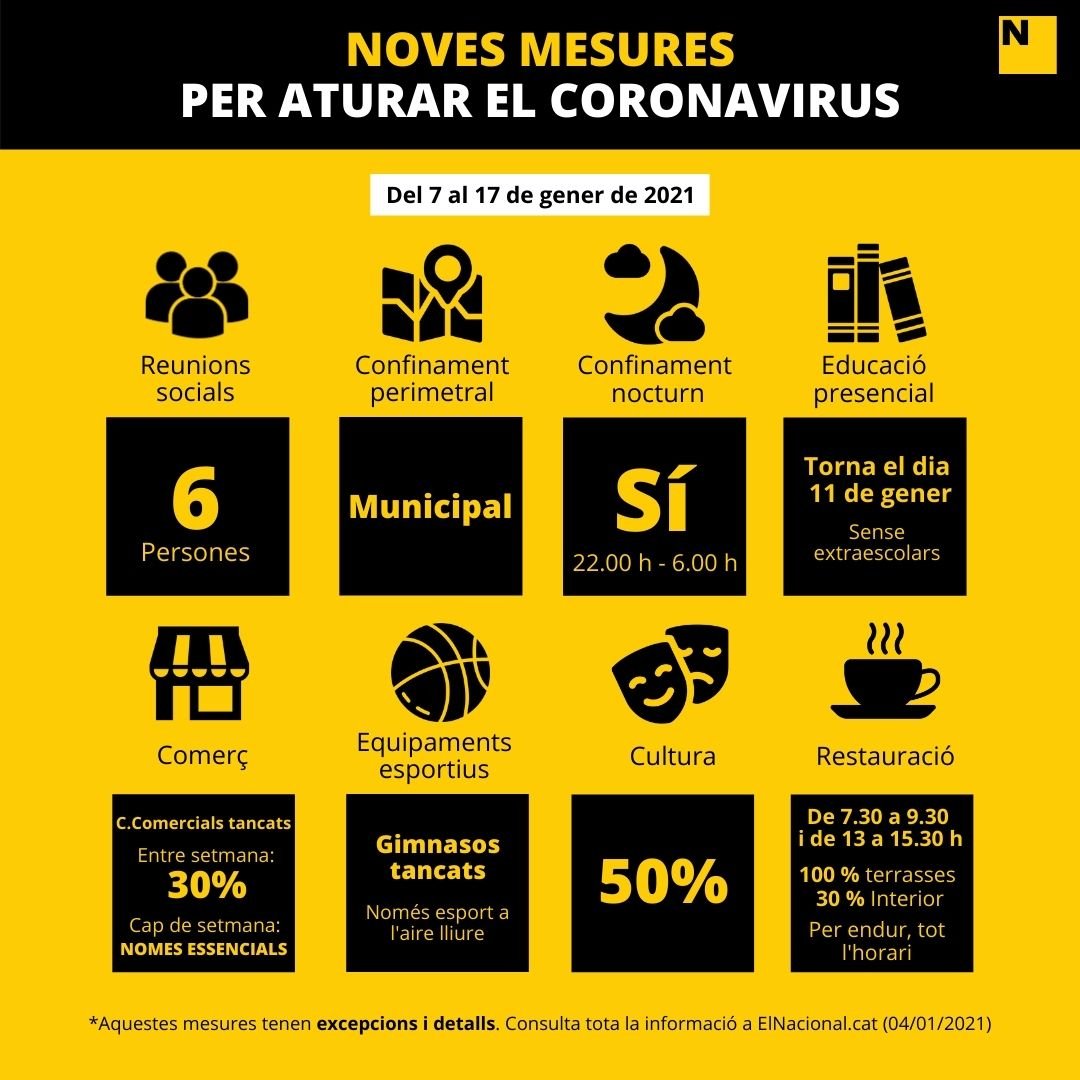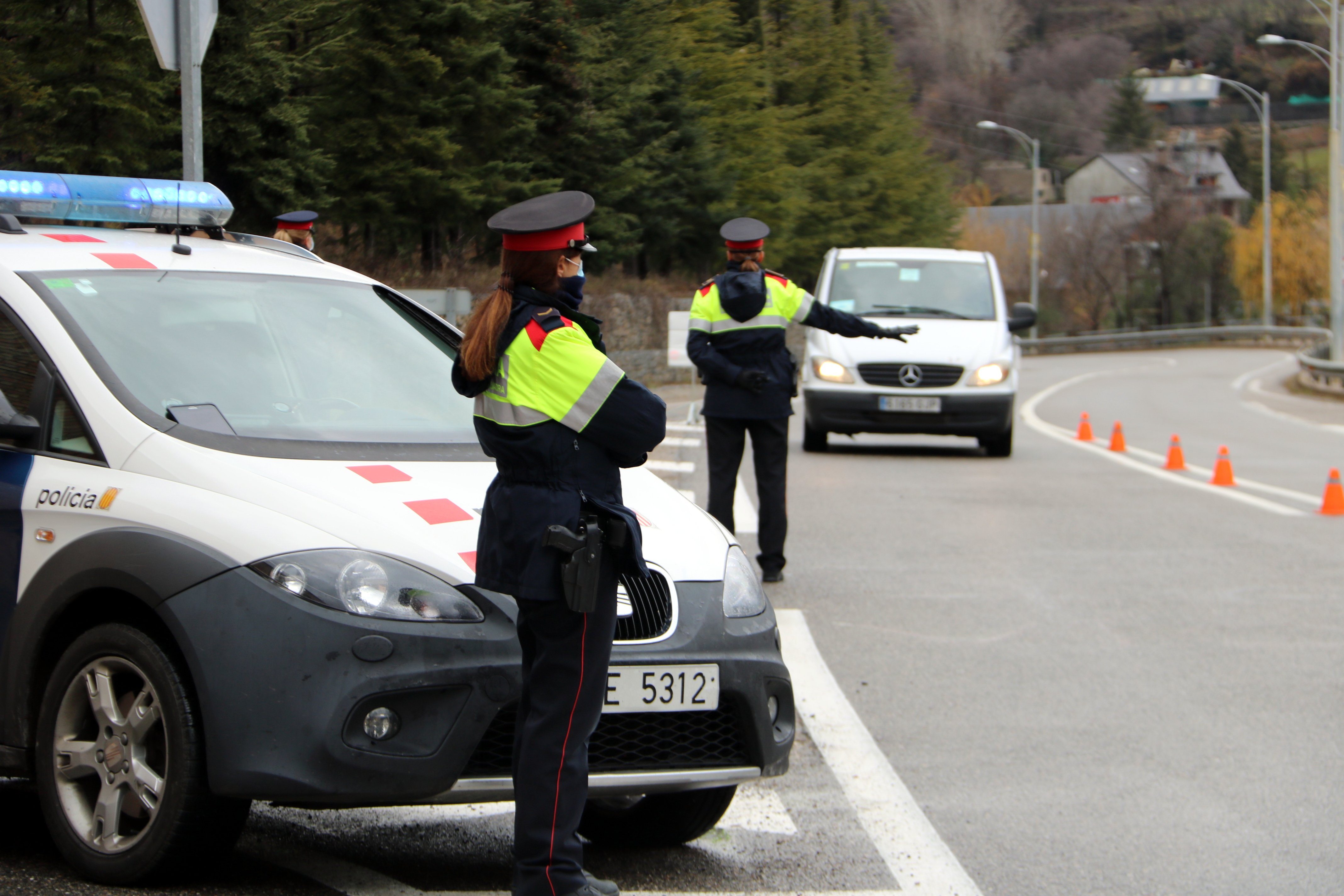With Christmas festivities not yet over in Catalonia - the major family festival of Reis on January 6th is still to come - the Catalan authorities have decided to impose confinement within municipal boundaries for the whole of Catalonia, starting on January 7th. "Ten days to stop the country," was how Catalan health minister Alba Vergés described it this Monday, justifying the strict measure as necessary to "further reduce social interaction", with the Rt transmission index in Catalan now having risen to 1.27 from 1.11 yesterday, and the outbreak risk index (EPG) reaching exactly 500 from 422 on Sunday.
Here are the new restrictions which will take effect on January 7th and are intended to be in force for 10 days - that is, until Sunday January 17th:
MOBILITY: Municipal confinement
From Thursday onwards, municipal boundaries in Catalonia will be closed once again. All entries and exits without a justifiable reason will be prohibited. Travel to second homes or holiday rental accommodation, permitted in some cases over Christmas, will not be allowed from January 7th.
Exceptions which are acceptable reasons for leaving one's municipality include:
- Taking individual exercise or outdoor sports in a neighbouring municipality to your own.
- Journeys to go to school.
- Commuting to work, when distance working is not possible.

CURFEW & GATHERINGS
Curfew is maintained between 10pm and 6am, as well as the limitation on social gatherings to six people from a maximum of two cohabitation bubbles.
However, an additional restriction on gatherings will now apply: for most people, they must be outdoors. Gatherings in enclosed spaces are only permitted for visits to people with dependency or vulnerability, and only those within the same cohabitation bubble.
RETAIL: New closures
One of the sectors most affected by the new restrictions is retail. These are the new measures:
- Shopping centres of more than 400 m² are to remain closed for 10 days from January 7th.
- As well, all non-essential shops must remain closed at weekends. That is: small retail businesses, and those in shopping centres of less than 400 m², as well as street markets, can only open from 6am to 9pm, Monday to Friday.
- Gambling centres (bingo halls, casinos and gambling rooms) are to remain closed.
BARS: As at present
On the other hand, bars and restaurants will remain open as at present: in the two limited time zones, from 7:30 to 9:30am, and from 1pm to 3:30pm. Capacity will be limited to 30% indoors, and with a maximum of four people per table.
SCHOOLS: Virtual teaching in universities
As for rules affecting education, lectures and theory classes in universities have to be held by virtual means, and secondary schools are recommended to reduce their face-to-face activity.
Classes will resume on January 11th, as was announced before Christmas. Face-to-face classes are maintained in infant, primary and secondary schools (although subject to the above recommendation for secondary classes). Extracurricular activities will be allowed as long as they are held in schools and involving stable classroom groups, but other recreational, extracurricular and school sport activities are suspended
Playgrounds will be open to 50% of capacity until 8pm, while indoor play centres will remain closed.
SPORT: Most indoor sport to close
As for sports facilities, they can open if:
- They are outdoors
- They limit capacity to 50% of normal maximum
- Groups no larger than 6 people (except for federated sport)
Indoor swimming pools are the exception - they will be able to open to 30% of capacity, but other indoor sports facilities must close and competitions will be suspended.
CULTURE & RELIGION: Mostly maintained
In terms of culture, these are the new restrictions:
- Cinemas, theatres, auditoriums and concert halls along with museums, libraries and exhibition halls can open for regular programming with these conditions:
- Capacity must be limited to 50% of normal, with a maximum of 500 people
- In cases where ventilation is optimal, this can be expanded to 1,000 people
For religious events, the rules are as follows:
- Up to 30% of normal maximum capacity
- Total maximum number of attendees indoors is 500, while outdoors or with optimal ventilation, up to 1,000.

